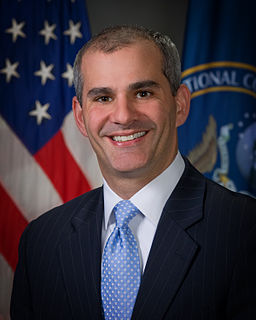A Quote by John Delaney
If done correctly, dynamic scoring will provide a more complete picture of Congress's actions. This is exactly the type of modeling the private sector uses, and advances in data collection and analysis create an opportunity for it to be employed accurately.
Related Quotes
Scientific data are not taken for museum purposes; they are taken as a basis for doing something. If nothing is to be done with the data, then there is no use in collecting any. The ultimate purpose of taking data is to provide a basis for action or a recommendation for action. The step intermediate between the collection of data and the action is prediction.
If you look at the fact that the best chance we have for a good economy is the private sector. The government cannot create jobs. If the government could create jobs, then Communism would have worked. But didn't work. So what we have to do is allow the private sector and the entrepreneurial spirit to lead us back to a job-filled recovery.


































